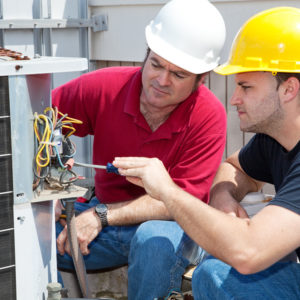As we move into summer, it is officially air conditioning season for much of the country. That’s usually an exercise in “buying local,” because air conditioning was invented in the United States (in Buffalo, New York) and American companies enjoy a commanding lead in heating and cooling technology.
The industry, which goes by the acronym HVAC (or even HVACR), is huge and growing. But a dark, dirty cloud looms on the horizon.
American companies have the best, greenest coolants available, yet until President Trump submits something called the Kigali Amendment to the Senate for ratification, we will have a harder time selling these products in foreign markets. And at the same time, because of agreements we are already bound to which Kigali is meant to update, Chinese companies will continue to have an easy time dumping dirtier coolants in the American market.
In fact, this could become a hot issue in battleground states that are just reaching for the AC, such as Iowa, Wisconsin and Michigan. International trade expert Mark Brady wrote that “with one action, President Trump could support an American industry that provides good-paying manufacturing jobs, as well as halt Chinese firms from hurting our manufacturing sector by flooding our markets with the inferior products.”
I could add that Trump would succeed here where his predecessor Barack Obama was unable to succeed. His administration fundamentally misunderstood the benefits of the Kigali Amendment, tried to implement it without submitting it to the Senate (which would have passed it), and got denied by the Supreme Court.
The Senate would have passed the agreement then and will now. This is true because senators understand that the HVAC industry provides a great boon and lots of good jobs to their states. Lots of good manufacturing jobs are attached to it now. More would come when the president sends this agreement to the Senate. Thirteen Republican senators have already sent a letter to Trump urging him to send them the treaty and they will enthusiastically vote to ratify it.
Many Trump supporters in battleground states see the economic benefits of Kigali and are encouraging the president to act.
I am proud to have served as majority leader of the Michigan Senate when Michigan began its comeback in 2010. Back then, it was predicted that our state would rank 52nd in job creation. That was dead last, behind every other state, the District of Columbia and Puerto Rico. But instead within eight years, we were in the top 10. We got there by pursuing common-sense policies that created American jobs.
I know a good deal when I see one, and Kigali is a good deal.

